
In a dynamic research and policy environment with a growing demand for data, it is crucial to invest in methods of data collection leading to timely, high-quality and policy-relevant data. Delhi Metropolitan Area Study (DMAS), a flagship study of NCAER National Data Innovation Centre, serves as an incubator to experiment with innovations in data collection across various substantive domains such as household income, expenditure, borrowing; labor force participation; financial inclusion; health insurance and healthcare expenditure; education; gender equality and empowerment, among others. Two key objectives of DMAS are: 1) Conducting methodological experiments in data collection involving technological innovations and innovations in questionnaire designing; and 2) Demonstrating the feasibility and usefulness of remote monitoring of data collection activities to improve data quality.
Data collection for DMAS continued from 15th February, 2019 to 14th November, 2021, with a break of one and half-year during the COVID-19 pandemic. During this time, we completed DMAS baseline survey, 3 quarterly surveys, 30 rounds of monthly telephone surveys on employment, and finally the endline. Our inability to complete the 4th quarterly survey and the endline on time (which was supposed to happen during March-May 2020) has implications on our planned experiments because of comparability issues around reference period across the two experimental groups (one group of households receiving 4 quarterly surveys and the other group getting the annual reference period endline). So we will not be able to achieve some of the original objectives we had, as one can imagine, the last round of data collection is crucial for any evaluation study. However, DMAS endline has immense potential to capture the medium to long term economic, health and educational impact of the pandemic.
The target geographical area for DMAS is the Delhi National Capital Region (NCR) which comprises 31 districts spread over four states, viz., Haryana (13 districts), Delhi (9 districts), Rajasthan (2 districts), and Uttar Pradesh (7 districts) . Although it may not be apparent from the name, Delhi NCR is a highly diverse region including the metropolitan areas of Delhi as well as rural areas of districts in Haryana, Rajasthan, and Uttar Pradesh. Within a state, we considered a multi-stage stratified cluster sampling design. Districts, clusters, and households were selected at the first, second, and third stages of sampling. Clusters or the secondary sampling units (SSUs) were defined as census villages in rural areas and NSS Urban Frame Survey (UFS) blocks in urban areas. The goal of the sampling design was to select representative random sample at each stages of selection.
Total number of households that completed DMAS baseline survey was 5,253. We considered equal allocation of sample across districts resulting in approximately 22 SSUs per district, with a few exceptions. Within a district, SSUs were allocated to urban (UFS blocks) and rural areas (villages) in proportion to the percentage of urban and rural households in the district. The median number of households surveyed from a SSU was 20. Equal number of households were considered from each SSU in order to manage the interviewer workload efficiently.

Sponsored Name
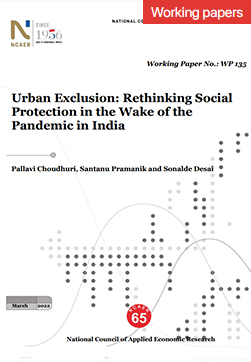
The COVID-19 pandemic, and the consequent nationwide lockdown in India that began on March 25, 2020, caused a major disruption in the labour market, leading to the widespread loss of livelihoods and food insecurity. The findings from a telephonic survey of a representative sample of more than 3,000 households in the National Capital Region (NCR)... Read More
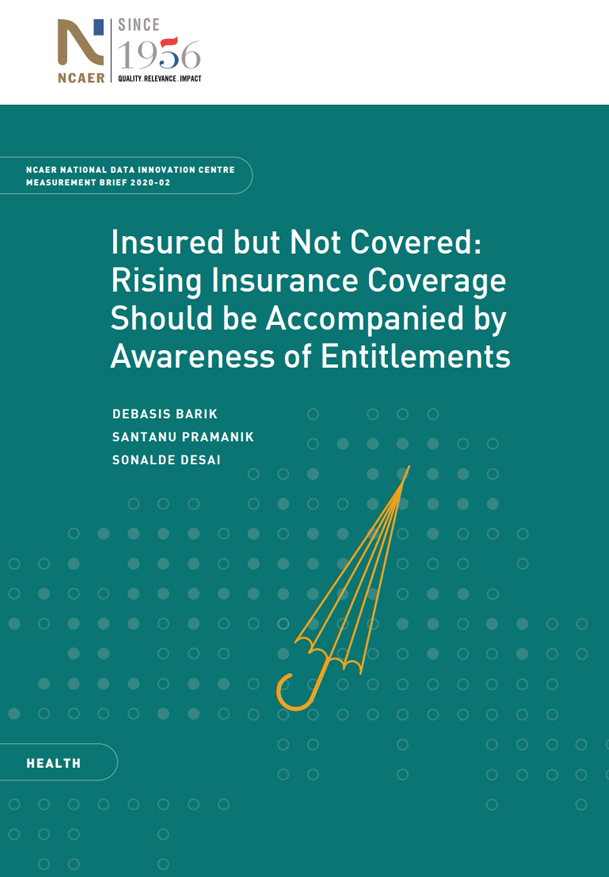
This is part of a series of Measurement Briefs from the NCAER National Data Innovation Centre based on the findings from the Delhi Metropolitan Area Study. This particular Brief on health insurance suggests that despite rising insurance coverage in recent years, individuals are not often aware of...
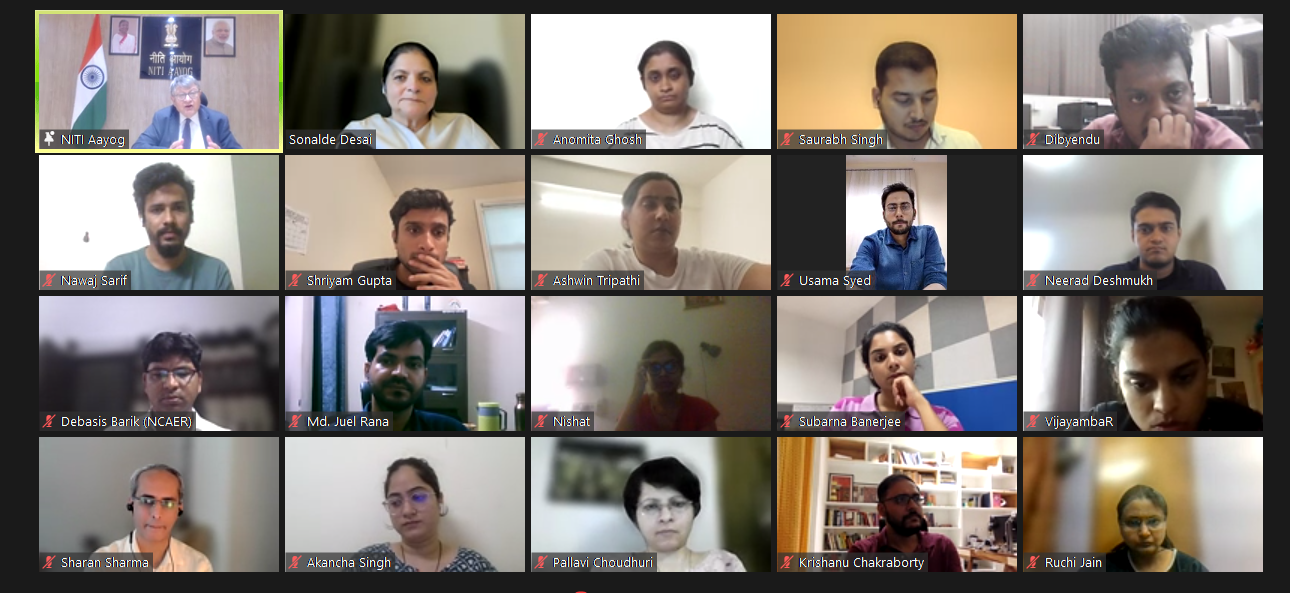
Mr. Suman Bery, Vice-Chairman of NITI Aayog, joined us for a special event the NDIC Fellows meeting on October 17, 2023. Mr. Bery shared insights on selecting impactful research topics, presenting results for policy influence, and NITI Aayog's research priorities. His conversation and query session with the fellows left the young scholars with ample of... Read More
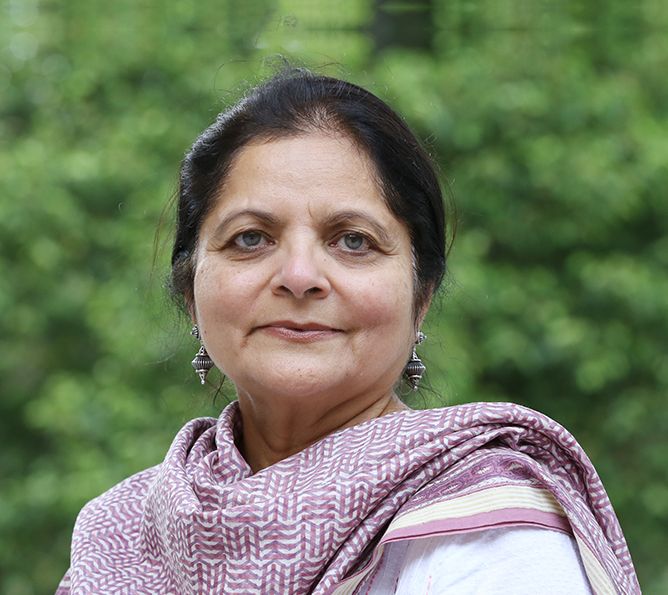
Dr Sonalde Desai, Professor at NCAER, who holds a joint appointment at University of Maryland, USA, has recently been appointed as Distinguished University Professor (DUP) at the University. DUP status is a permanent honorific title that recognises exceptional records in research, teaching, and service. Dr Desai has also been appointed to the Committee on Population... Read More
How have the lives of residents of Delhi and other areas in the National Capital Region (NCR) changed over the past two years since the advent of COVID? NCAER National Data Innovation Centre (NCAER-NDIC) team discussed results from the Delhi Metropolitan Area Study (DMAS), which interviewed residents from Delhi-NCR in 2019, before the onset of... Read More
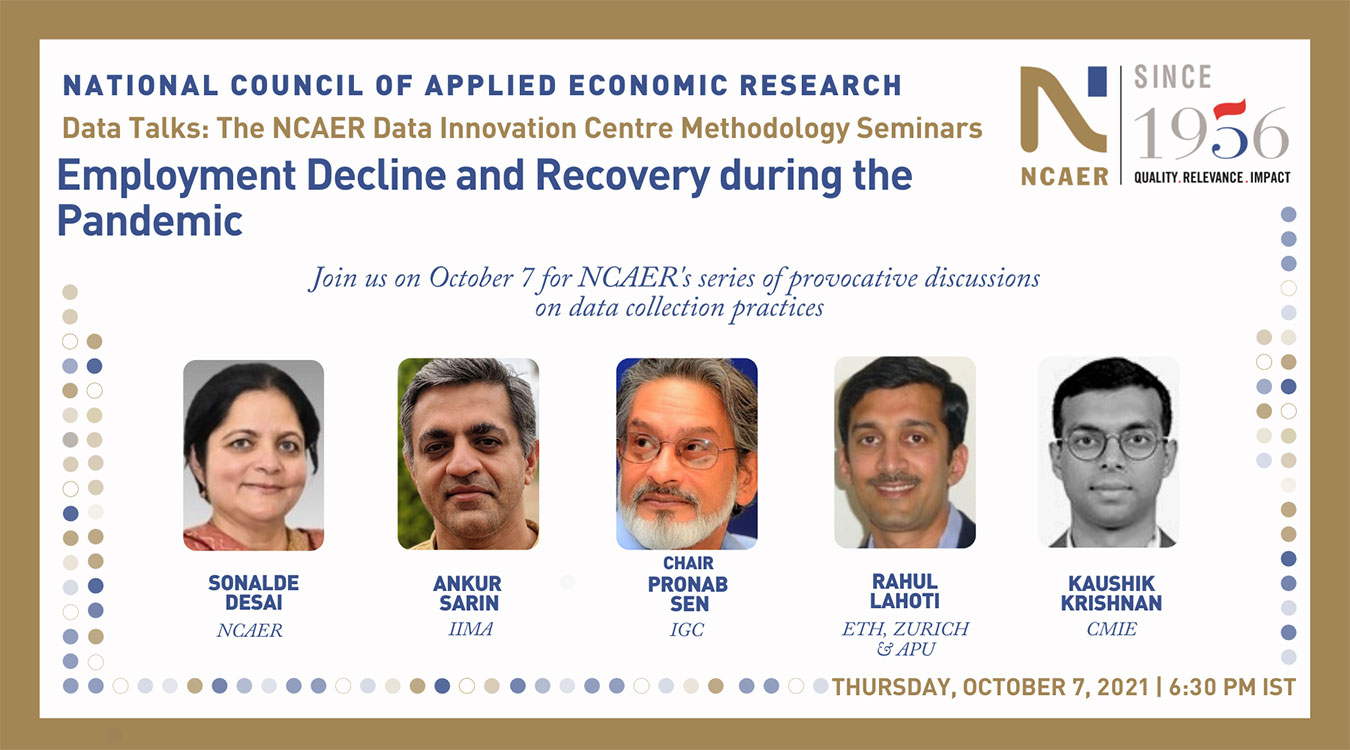
The NCAER National Data Innovation Centre (NDIC) held a seminar on “Employment Decline and Recovery during the Pandemic”, on October 7, 2021. This webinar was the fourth in a series of thought-provoking discussions on research methodologies organised by NDIC, in which distinguished speakers in the field share their views. The participants in the discussion included... Read More
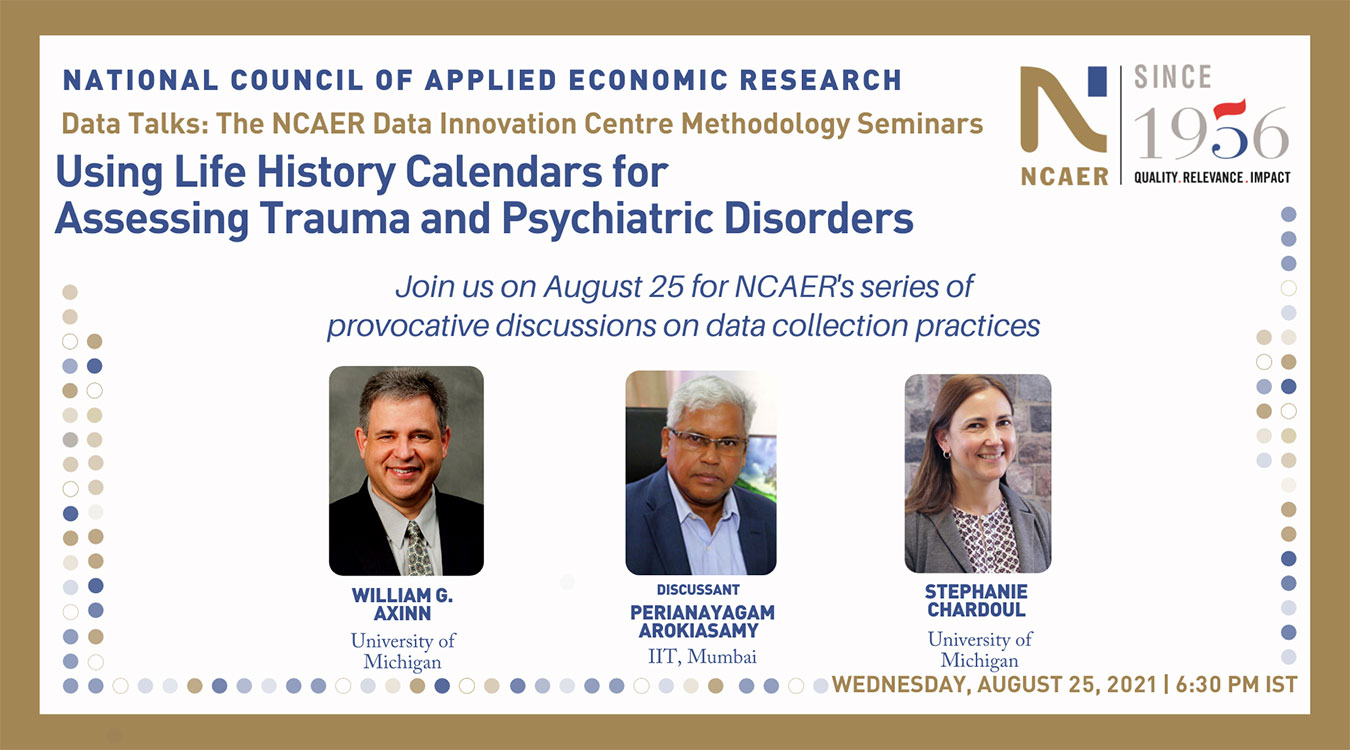
Using Life History Calendars to Improve Measurement of Lifetime Experience with Trauma and Psychiatric Disorders The third webinar in the NCAER Seminar series on Data Collection Methodology was organised by the NCAER National Data Innovation Centre on August 25, 2021. The webinar is part of a series of thought-provoking discussions on research methodologies in which distinguished speakers in the field... Read More
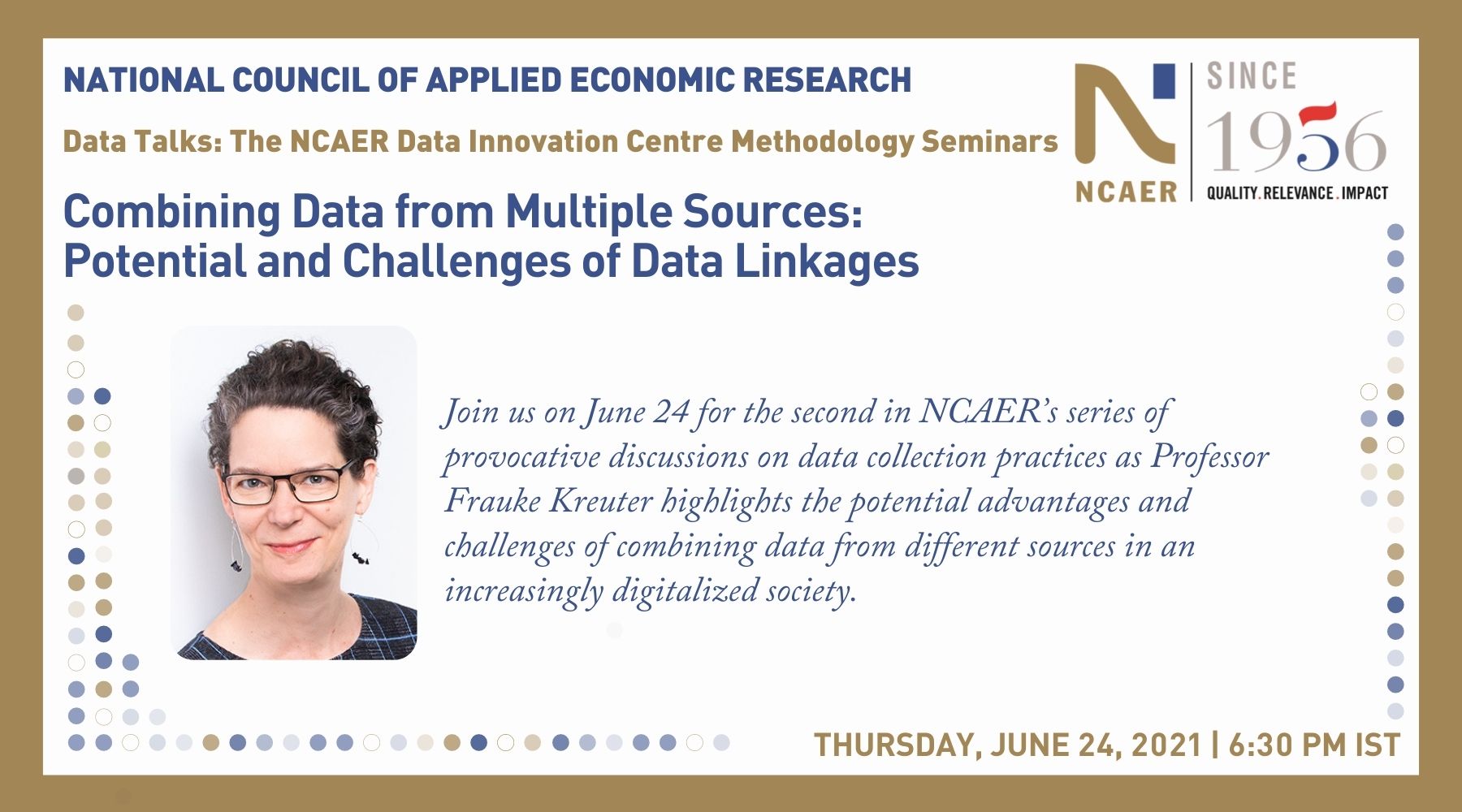
The second webinar in the NCAER Seminar series on Data Collection Methodology organised by the NCAER National Data Innovation Centre was held virtually on June 24, 2021. The webinar is part of a series of thought-provoking discussions on research methodologies in which distinguished speakers in the field will share their views and one or more... Read More
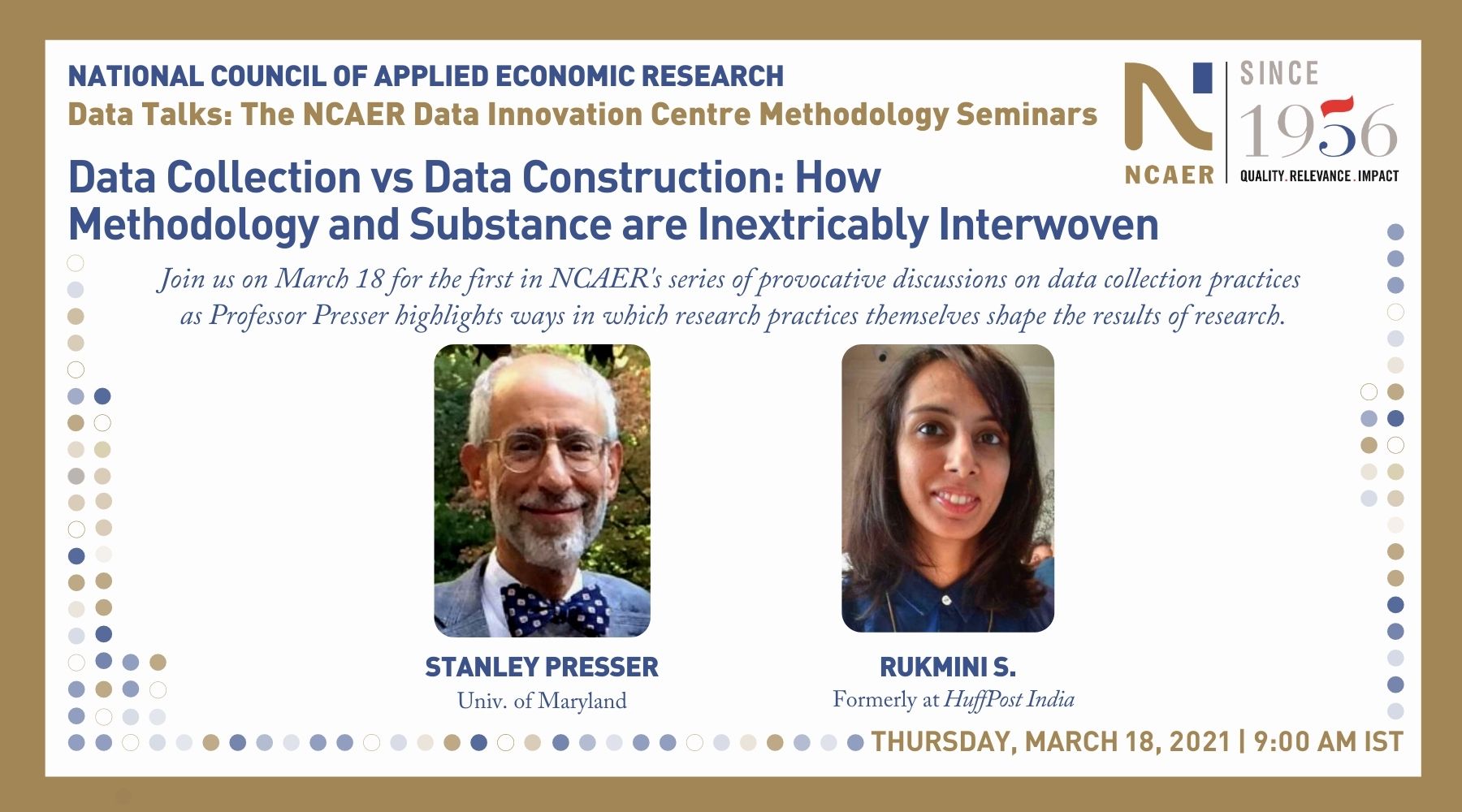
Data Collection vs Data Construction: How Methodology and Substance are Inextricably Interwoven The first in a new NCAER seminar series on Data Collection Methodology was organised by the NCAER National Data Innovation Centre on March 18, 2021. This first seminar, presented by Stanley Presser, Distinguished University Professor at the University of Maryland, is part of a series of provocative discussions on... Read More